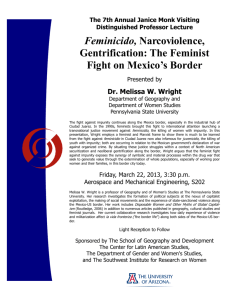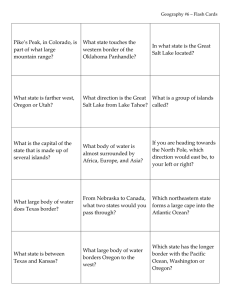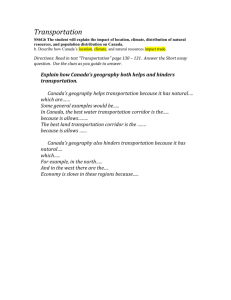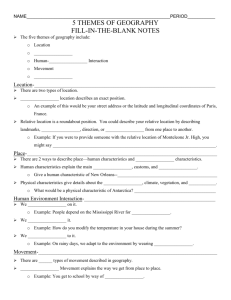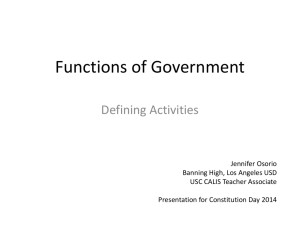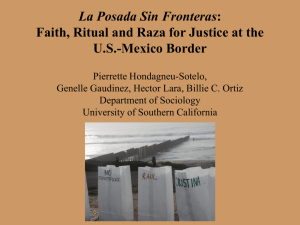wright grad invitational-005-01s new time-02 for print-07-
advertisement
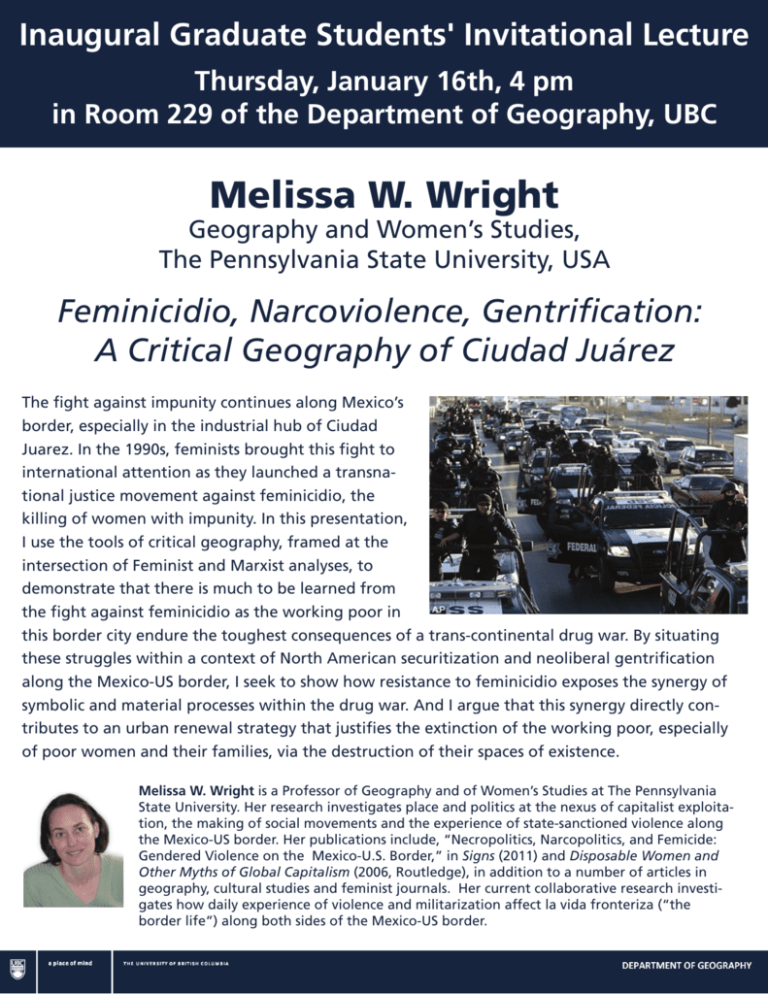
Inaugural Graduate Students' Invitational Lecture Thursday, January 16th, 4 pm in Room 229 of the Department of Geography, UBC Melissa W. Wright Geography and Women’s Studies, The Pennsylvania State University, USA Feminicidio, Narcoviolence, Gentrification: A Critical Geography of Ciudad Juárez The fight against impunity continues along Mexico’s border, especially in the industrial hub of Ciudad Juarez. In the 1990s, feminists brought this fight to international attention as they launched a transnational justice movement against feminicidio, the killing of women with impunity. In this presentation, I use the tools of critical geography, framed at the intersection of Feminist and Marxist analyses, to demonstrate that there is much to be learned from the fight against feminicidio as the working poor in this border city endure the toughest consequences of a trans-continental drug war. By situating these struggles within a context of North American securitization and neoliberal gentrification along the Mexico-US border, I seek to show how resistance to feminicidio exposes the synergy of symbolic and material processes within the drug war. And I argue that this synergy directly contributes to an urban renewal strategy that justifies the extinction of the working poor, especially of poor women and their families, via the destruction of their spaces of existence. Melissa W. Wright is a Professor of Geography and of Women’s Studies at The Pennsylvania State University. Her research investigates place and politics at the nexus of capitalist exploitation, the making of social movements and the experience of state-sanctioned violence along the Mexico-US border. Her publications include, “Necropolitics, Narcopolitics, and Femicide: Gendered Violence on the Mexico-U.S. Border,” in Signs (2011) and Disposable Women and Other Myths of Global Capitalism (2006, Routledge), in addition to a number of articles in geography, cultural studies and feminist journals. Her current collaborative research investigates how daily experience of violence and militarization affect la vida fronteriza (“the border life”) along both sides of the Mexico-US border.
